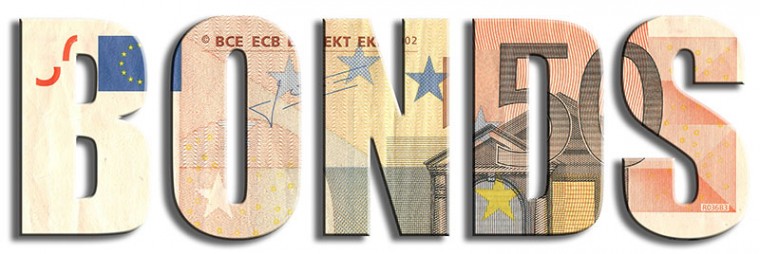To find the marketís biggest weakness, a good place to look is at the most crowded movie theater with the smallest exit.
European bonds.
Youíve probably seen the charts of European high yield floating around, so I wonít reproduce it here. Yields in the low 2s for BB credits. There was also a European corporate issuer that managed to issue BBB bonds at negative yields a few weeks ago. I think that might have been the top.
No shortage of stupid things these days:
- Bitcoin
- Litecoin
- Pizzacoin
- Canadian real estate
- Swedish real estate
- Australian real estate
- FANG
- Venture capital
But European bonds are potentially the stupidest. Maybe even stupider than bitcoin!
Although there is nothing stupid about itóthe ECB has been buying every bond in sight, and thereís lots of money to be made frontrunning central banks.
Still, itís possible that weíve reached the logical limit of emergency monetary policy, and the ECB is going to have to exit sometime in the near future. The question is: how are they going to exit without blowing up the bond market?
And itís not just the European bond market. The effects have been transmitted to other bond markets as well, like our own. If the ECB exits, or, heaven forbid, the BOJ tries to exit as the same timeóand screws it upóthere is a potential for a real meltdown.
What would a meltdown look like? Fact: any time ten year yields have backed up 200 basis points, there has been a crisis. You have to go back to 1994 for the last one. And we even had a mini-crisis in 2013, which we called the taper tantrum.
If tens backed up from 2.3% to 4.3%, it would be a crisis of gargantuan proportions.
What is the probability that it will happen?
Disorderlies
Itís tough to think of these things in terms of probabilities. For example, itís very probable that the ECB will begin its exit next year. But what is the probability that they screw it up?
Itís literally impossible to handicap. You canít quantify it. But again: crowded theater, small exit, so you know the unwind has the potential to be disorderly if the ECB is careless about how they exit.
Anyone who has seen markets in action (at least, for a decade or more) knows that selling can lead to more selling, which can lead to more selling, otherwise known as a cascading effect. Nobody under 30 knows what this looks like. I actually had a very funny conversation with some high yield guys a few weeks ago. They were laughing at one of their junior traders, who was getting a bit panicked as he watched the index sell offÖ a point. ďThis is getting out of control,Ē he said.
I am not much interested in the bond market until you get tens to 4, investment grade to 7, and high yield to 12. I will turn into High Yield Harry if you get yields out to 12%.
Those sound like impossible levels, but you just have to dream a little bigger, dear readers. Remember: cash is an option to buy something cheaper in the future. If yields do get out to 12%, and you donít have the cash to take advantage of it, you are going to be kicking your own butt all the way down the street.
How to Play the Rally
It is waaaaay too early to be thinking about this, but if you are going to try and pick a bottom in the throes of a bear market, it is a lot smarter to do it in the high yield market than the stock market.
Itís hard to get hurt too badly when youíre getting paid 12-14% to wait for a bottom. Stocks are a different story. Stocks can go down forever. In 2009, it really seemed like they were going down forever. That is too scary for me.
But I really like buying credit in bear markets and I also like buying converts. Go back and look at high yield and convert mutual funds coming out of bear markets. Youíre talking about 30-40% returns, especially on the lower-quality stuff. On a risk-adjusted basis, itís a lot better than stocks.
In the meantime, there is nothing to do. I am trying to get as close to all cash as I can. As Iíve said a million times before, for the first time in a long time, you are getting paid to hold cash.
It has been a really long freaking time since there was a stock or a bond that looked attractive on a valuation basis. Just because something is going up doesnít mean it is attractive. The old-timers know: there is a cycle. It may not seem like it, but there is.
https://www.riskhedge.com/post/2018s-number-one-risk-op









